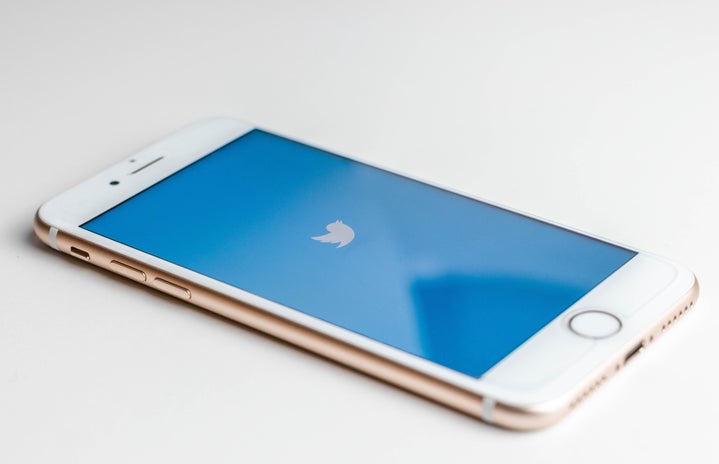Edited by: Aahana Banerjee
Your fingers dance near the white space occupied by the sweet, blue bird; opening Twitter feels like opening pandora’s box. Shielding your eyes from the brightness of the default light mode, you switch to dark mode to scroll through endless 280 character stories. Some read extremely profound, like Noah Centineo’s poignant postmodernist text that questions the nature of reality itself, reading “It’s adorable that you think you know. You don’t.”, while some are long-running AU fanfictions about anime characters that read like actual novels. You slowly grab popcorn to look at two of your moots arguing over whether nachos with salsa is better than nachos with cheese. With #XYZisoverparty trending, you get your daily current affairs dosage. Once in a while, you’ll see ARMYs trend something like “Namjoon’s hands.”
Therefore, it is only when you open twitter that you can find profundity in the inane, and the inane in the “profound”: a melting pot of misused intellectualization produced in a language that is only known to the 206 million daily active users on the platform. From “stan” to “scopee tu manaa”, every slang word or phrase on the platform is produced, reproduced and used until it eventually seemingly loses all meaning.
In a similar attempt to intellectualize the inane, and to find meaning within these words, comes an analysis of twitter socio-linguistics.
What does our slang mean and where does it come from? Can the usage of this vocabulary be political? What does it have to do with language as a whole?
First comes the question of how slang words themselves come to be formed and popularized. The popularization primarily stems from a section of twitter called “stan” twitter. “Stan” in itself is a slang term taken from Eminem’s song of the same name, often being used to refer to obsessive fans. While the initial connotation was primarily negative, it is extremely interesting to see how language has evolved, and even made casual the usage of “stan”, such that we often end up telling things/people we like that we “stan” them. Stan culture on twitter is a swarming beehive of ideas, individuals and everything in between—you have stan wars, you have streaming parties, and you post about your “fave” and call it a day. Steeped within words like “ate and left no crumbs”, “serving realness” or “periodt”, a lot of the linguistics that emerge from twitter seem harmless…at first.
However, what the boom in word usage through stan twitter often obscures, is the origin of twitter terms from LGBTQ+ and Black culture. With terms like “voguing” entering into the mainstream as well, it is also worthwhile to remember that these terms originated from the LGBTQ+ community. Particularly terms like “serving realness” or “periodt” were used extensively by black, queer individuals before they were appropriated into the mainstream. Several black creators have often called out stan Twitter for appropriating African American Vernacular English (AAVE). With most of our internet culture starting to be integrated into increasing forms of monetization, such that the benefits of using terms can accrue to certain individuals and not others, it plays into a certain degree of tangible inequity. Through taking from peripheralized lives, appropriating their language and then keeping them at the margins of the credits that accrue from them, the obscuring of origins becomes political. It is political precisely because it originates from communities that were historically misunderstood, marginalized, and placed at the periphery of language. They often had to create their own language to tell their stories because the mainstream refused to accept or acknowledge them.
Language is a tool through which narratives are built—around race, gender, sexuality, class and caste. By appropriating these words without appropriate acknowledgement of their roots, one can often run the risk of playing into the same erasure-driving inequitable power dynamics that play out offline, online.
That being said, this isn’t to say that slang words shouldn’t be used at all; it becomes important to trace the source of where they came from, and honour the purpose that they serve. Quite often, creation of slang amongst marginalized communities has fostered a sense of community and camaraderie—regardless of who you are, the language itself brings people together.


